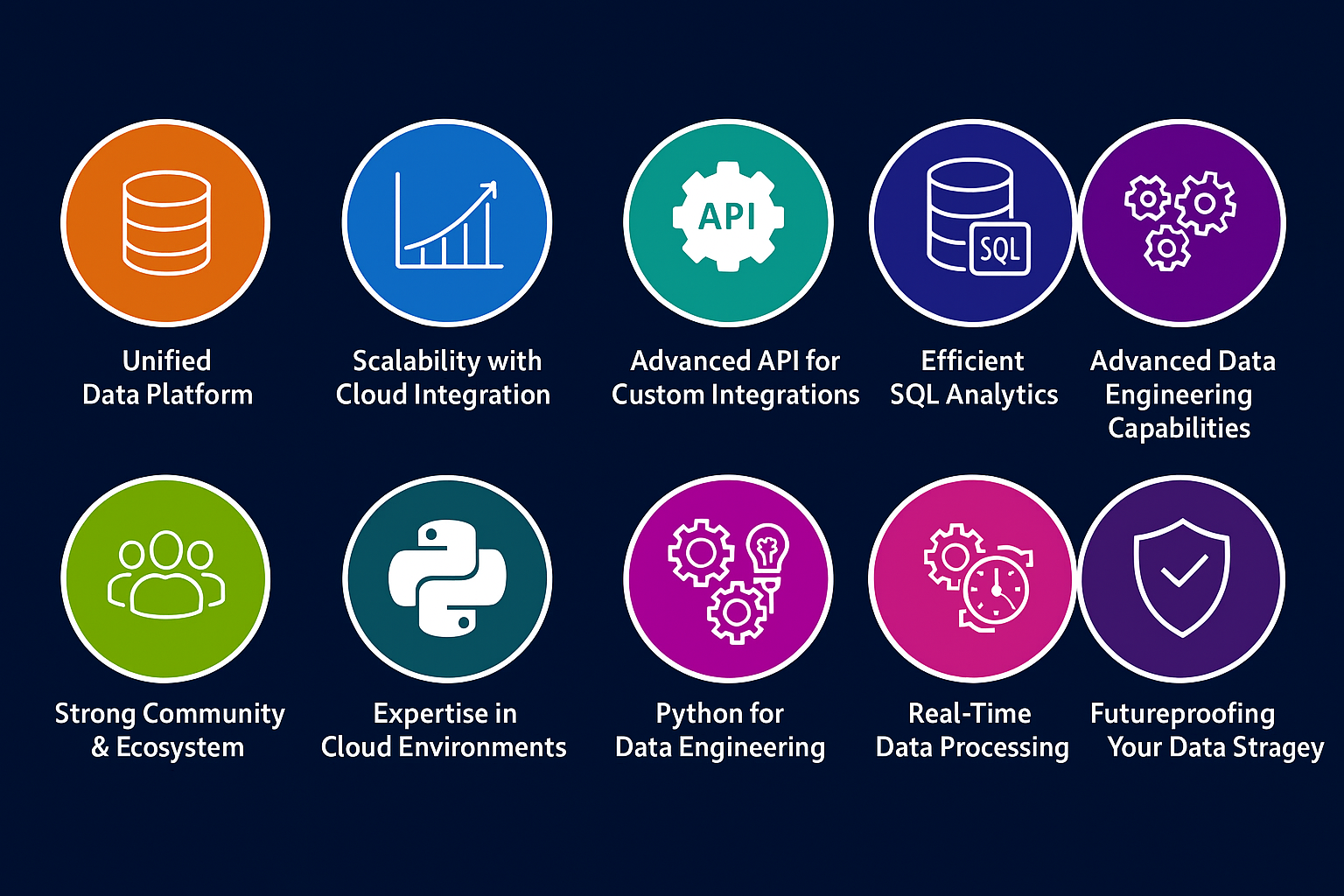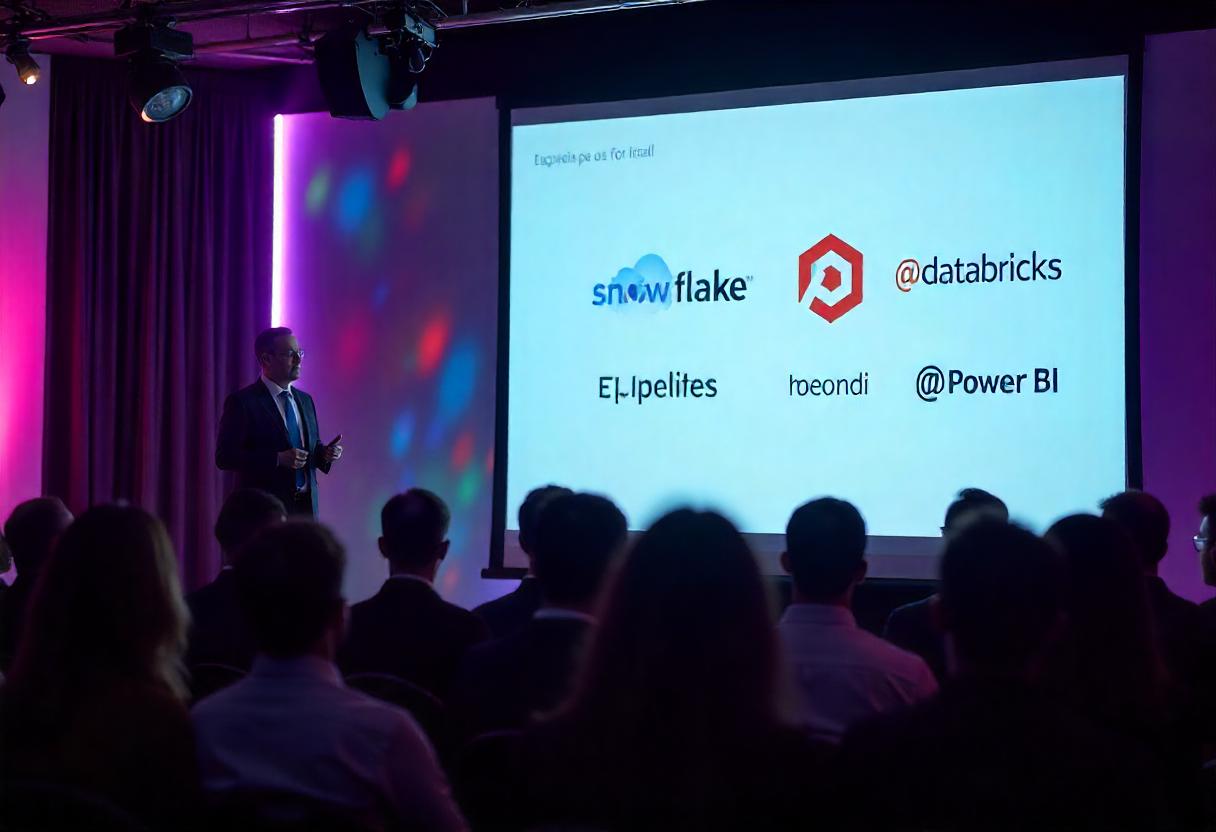Introduction
In the rapidly evolving world of data engineering, Databricks has emerged as a game-changing platform, combining innovation with practicality to redefine how businesses manage and leverage their data. Its advanced suite of tools simplifies the entire data lifecycle—from ingestion and transformation to analytics and machine learning—enabling organizations to work faster, smarter, and at scale.
What sets Databricks apart is its seamless integration with leading cloud platforms like Azure and AWS, allowing businesses to harness the full power of the cloud without complexity. The platform’s unified architecture bridges data engineering, analytics, and AI, eliminating silos and accelerating insights. With robust APIs, Databricks offers unparalleled flexibility for custom integrations, while its optimized SQL capabilities deliver high-performance querying for real-time decision-making.
By blending cutting-edge tools with scalable infrastructure, Databricks isn’t just keeping pace with the future of data engineering; it’s defining it.
1. Unified Data Platform
Databricks brings everything together in one powerful platform — data engineering, data science, and machine learning — all seamlessly integrated. This means data engineers, data scientists, and ML engineers can easily collaborate in a single, unified environment. From bringing in raw data to deploying machine learning models, Databricks streamlines the entire workflow. No more silos or back-and-forths between teams — just smooth, efficient processes that boost productivity and spark innovation.
2. Scalability with Cloud Integration
Azure Databricks and AWS Databricks take full advantage of the scalability and flexibility of the cloud. Built specifically for these environments, Databricks makes it easy for businesses to scale their infrastructure up or down based on their data needs. Whether you're processing a little data or a massive amount, Databricks ensures you’re never held back by infrastructure limits. It gives teams the freedom to focus on insights and innovation — not on managing servers or worrying about capacity.
3. Advanced API for Custom Integrations
The Databricks API unlocks powerful features for custom integrations and automation. Whether you're looking to automate routine tasks, connect with other tools, or build custom applications, the API gives you the flexibility and control you need. It's a game-changer for data engineers — streamlining workflows, boosting efficiency, and extending what you can do with Databricks. If you're serious about optimizing your data operations, this is a must-have in your toolkit.
4. Efficient SQL Analytics
Databricks SQL is a powerful tool for data engineers who need to run complex queries on large datasets. It offers a high-performance environment with optimized execution plans and an efficient query engine, making it easy to run even the most demanding SQL workloads. With fast, reliable access to data and streamlined analytics, Databricks SQL helps data teams retrieve insights effortlessly. It's an essential tool for anyone serious about data analytics and performance-driven querying.

5. Advanced Data Engineering Capabilities
Databricks excels at data engineering and management, offering powerful features for data ingestion, transformation, and validation. It supports a wide range of data sources and formats, making it easier to build and maintain reliable data pipelines. With this end-to-end support, data engineers can handle even complex workflows with ease — reducing overhead and speeding up development. Databricks takes the hassle out of managing data so teams can focus on delivering insights and driving innovation.
6. Strong Community and Ecosystem
Databricks is backed by a strong, thriving community and a robust ecosystem. From detailed documentation and hands-on tutorials to an active user community, there's plenty of support to help users get the most out of the platform. Databricks also partners with industry leaders to offer seamless integrations that enhance its functionality even further. This powerful ecosystem ensures that data engineers have everything they need — from guidance to tools — to succeed in their projects and drive real impact.
7. Expertise in Cloud Environments
For cloud data engineers, Databricks is a top choice. The platform is fully optimized for both Azure and AWS environments, offering native integrations and seamless support for cloud-native technologies. This ensures that data engineers can harness the full power of their preferred cloud platform while benefiting from Databricks’ robust capabilities. It’s a perfect blend of flexibility, performance, and cloud compatibility — making it ideal for modern data engineering workflows.
8. Python for Data Engineering
Python is a favorite among data engineers — and Databricks offers full support for it. Whether you're using Python for data cleaning, ETL processes, or machine learning, Databricks provides an ideal environment for development. With built-in support for popular libraries and frameworks, it becomes much easier to create and manage complex data workflows. This seamless Python integration makes Databricks a powerful choice for any data-driven project.

9. Real-Time Data Processing
In today’s fast-paced and competitive business world, real-time data processing is more important than ever — and Databricks delivers. With advanced support for real-time analytics, Databricks enables data engineers to build powerful, real-time data pipelines with ease. These pipelines process and analyze data as it arrives, providing instant insights and enabling faster, smarter decision-making. It’s a game-changer for businesses that rely on up-to-the-minute information to stay ahead.
10. Futureproofing Your Data Strategy
Databricks empowers businesses to future-proof their data strategy with confidence. With a strong focus on innovation and continuous improvement, it enables organizations to grow faster and stay ahead in the ever-evolving world of data engineering. By choosing Databricks, businesses align themselves with a platform designed to evolve alongside their needs — staying current with the latest tools, technologies, and best practices in the industry.
🚀 Want to implement cutting-edge data engineering frameworks with modern tools and technologies? [Click here to get started.]
After exploring its wide range of capabilities, it's clear that Databricks is an essential solution for data engineers. Its unique ability to unify data engineering, data science, and machine learning in one seamless platform sets it apart from traditional tools. With robust integration across major cloud providers like Azure and AWS, Databricks allows organizations to leverage the best of both worlds — powerful data processing and scalable cloud infrastructure. Databricks isn’t just the future of data engineering — it's a critical component for any business aiming to stay competitive in today’s data-driven economy.
